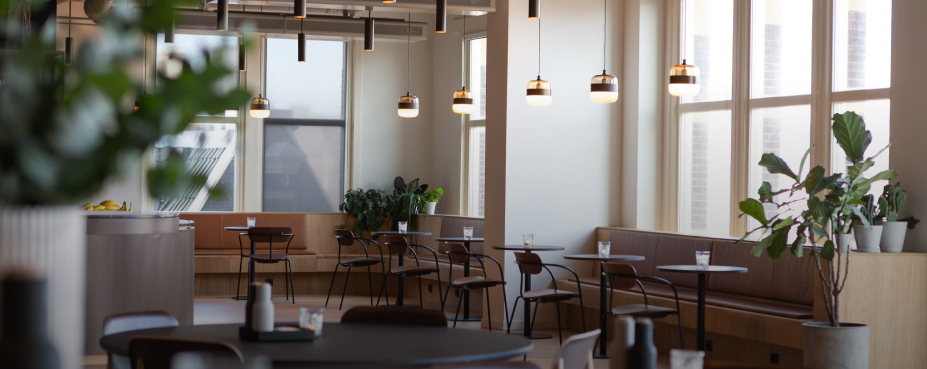Shared co-working spaces have become a hub for creativity, collaboration, and business growth in cities like London. With so many people using the same facilities, maintaining a clean and disinfected co-working space is critical to protect health and enhance productivity. In this article, we’ll cover the essential tips for keeping your shared workspace safe, germ-free, and conducive to success. 💼✨
Why Disinfection is Crucial in Co-Working Spaces
Co-working spaces in London are thriving, offering individuals and businesses flexible office environments. However, due to their high traffic, shared spaces are more susceptible to the spread of germs, bacteria, and viruses. Here’s why regular disinfection is essential:
- High-Touch Surfaces: Desks, chairs, door handles, and other shared spaces are frequently touched, making them breeding grounds for germs.
- Health and Safety: In a shared environment, illnesses spread quickly. Regular disinfection reduces the risk of outbreaks, such as colds, flu, and COVID-19.
- Improved Productivity: A clean workspace promotes a healthy and focused mindset. Employees are less likely to feel distracted by dust, germs, and clutter.
Top Disinfection Tips for Co-Working Spaces
Maintaining a disinfected and hygienic environment requires dedication and consistency. Here are the best practices for achieving this in your co-working space:
1️⃣ Regularly Clean High-Touch Areas
High-touch areas should be disinfected more frequently, as they carry the most germs. These include:
- Desks and tabletops
- Computer keyboards, mice, and phones
- Door handles and light switches
- Shared office equipment, such as printers and photocopiers
Use an EPA-approved disinfectant to wipe down these surfaces multiple times a day to ensure a germ-free environment.
2️⃣ Implement a Cleaning Schedule
Creating and sticking to a regular cleaning schedule is essential for keeping the space consistently clean. This includes:
- Daily cleaning of high-touch surfaces.
- Weekly deep cleaning of shared areas, including lounges, kitchens, and bathrooms.
- Monthly sanitation of air vents and HVAC systems to improve air quality.
Make sure to hire professional cleaning services for periodic deep cleans, especially in high-traffic areas.
3️⃣ Encourage Personal Hygiene Practices
Promote hygiene practices among co-workers to reduce the spread of germs:
- Hand sanitizers: Provide hand sanitizers in common areas, such as the kitchen, meeting rooms, and workstations.
- Masks: Encourage wearing face masks, especially during flu seasons or in densely populated areas.
- Wipes and disinfectants: Offer disinfecting wipes for individuals to clean their desks and equipment after use.
4️⃣ Clean and Sanitize the Kitchen Area
The kitchen in a shared workspace is a hot spot for germs. To maintain cleanliness:
- Wipe down surfaces: Clean countertops, tables, and sinks with disinfectant.
- Sanitize utensils and appliances: Regularly sanitize shared items like microwaves, fridges, coffee machines, and dishwashers.
- Trash management: Ensure that trash bins are emptied regularly and cleaning supplies are stocked.
5️⃣ Optimize Air Quality
Proper ventilation is key to maintaining a germ-free atmosphere. Consider the following:
- HVAC systems: Regularly clean and replace filters to improve air quality and reduce airborne pathogens.
- Air purifiers: Use HEPA filters in areas with high foot traffic, such as meeting rooms or lounges, to trap germs and allergens.
- Open windows: Whenever possible, ventilate the space to reduce indoor air contamination.
6️⃣ Focus on Carpet and Upholstery Cleaning
Soft furnishings, such as carpets and upholstered furniture, can harbor bacteria, dust mites, and allergens. Regular cleaning of these areas is essential to keep your co-working space germ-free:
- Vacuum carpets daily to remove dirt, debris, and bacteria.
- Use professional cleaning services for deep-cleaning carpets and upholstery every few months.
- Disinfect high-traffic areas where seating is common.
7️⃣ Establish a ‘Clean Desk’ Policy
Encourage all co-workers to adopt a clean desk policy, ensuring that personal items are kept organized and off desks after use. This policy reduces clutter and makes cleaning easier.
Why Hire Professional Cleaning Services for Co-Working Spaces?
While regular cleaning is important, sometimes it’s best to leave the task to professionals. Here’s why:
- Expert Knowledge: Professional cleaners have the tools, products, and training to sanitize every corner of the office, ensuring no surface is overlooked.
- Time-Saving: Let cleaning professionals handle the cleaning tasks, so you can focus on your work and clients.
- Specialized Equipment: Professional cleaning services use high-end equipment like industrial vacuums, steam cleaners, and air purifiers to ensure optimal cleanliness.
If you’re interested in booking a professional cleaning service, get a free quote here.
Conclusion
Disinfection and cleanliness are paramount in maintaining a safe and productive co-working space in London. By following these tips, you can reduce the spread of germs, improve air quality, and ensure your space is comfortable for everyone. Regular cleaning of high-touch areas, sanitizing shared equipment, and professional deep-cleaning services are key to making your shared office a hygienic environment.
